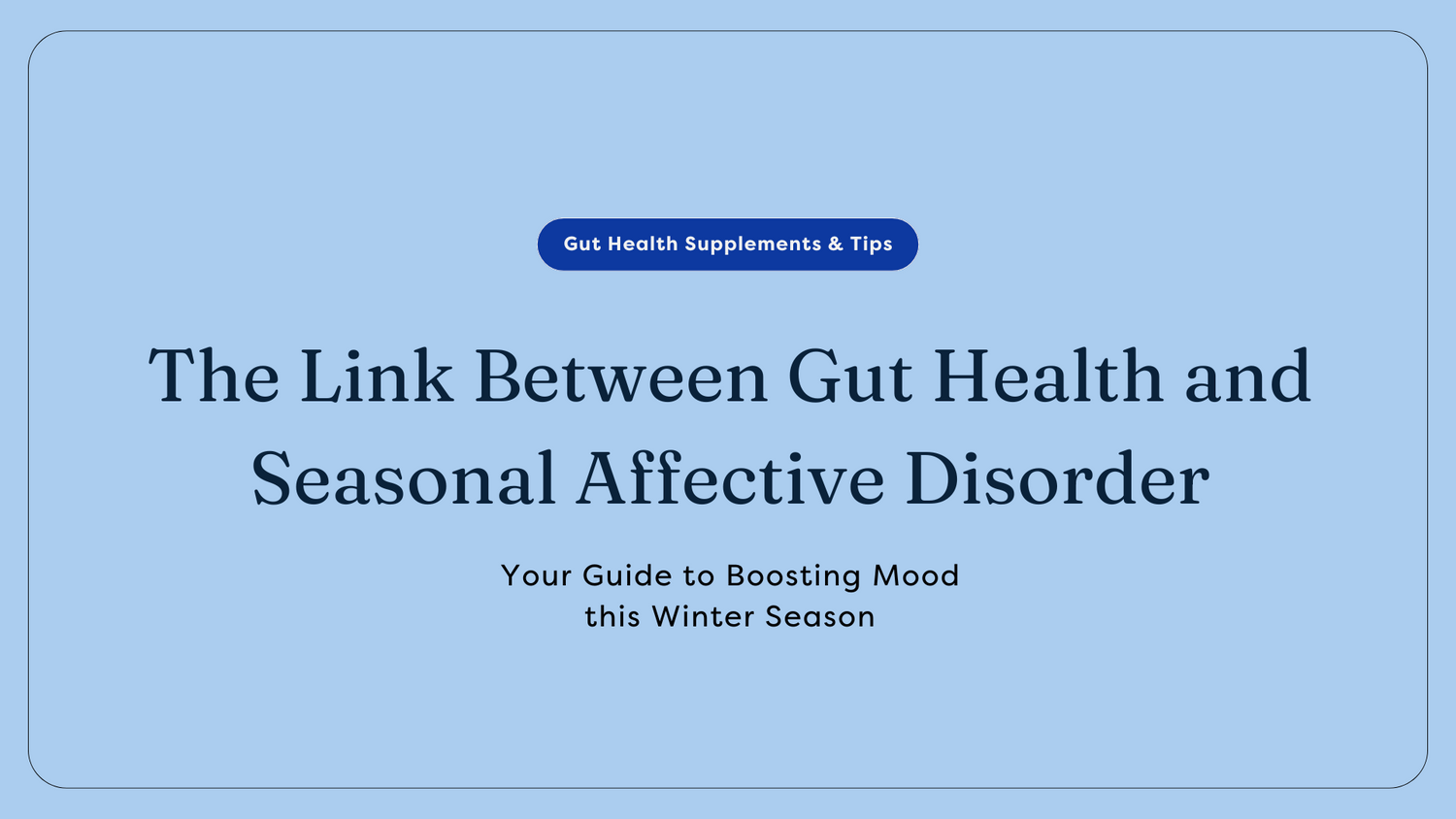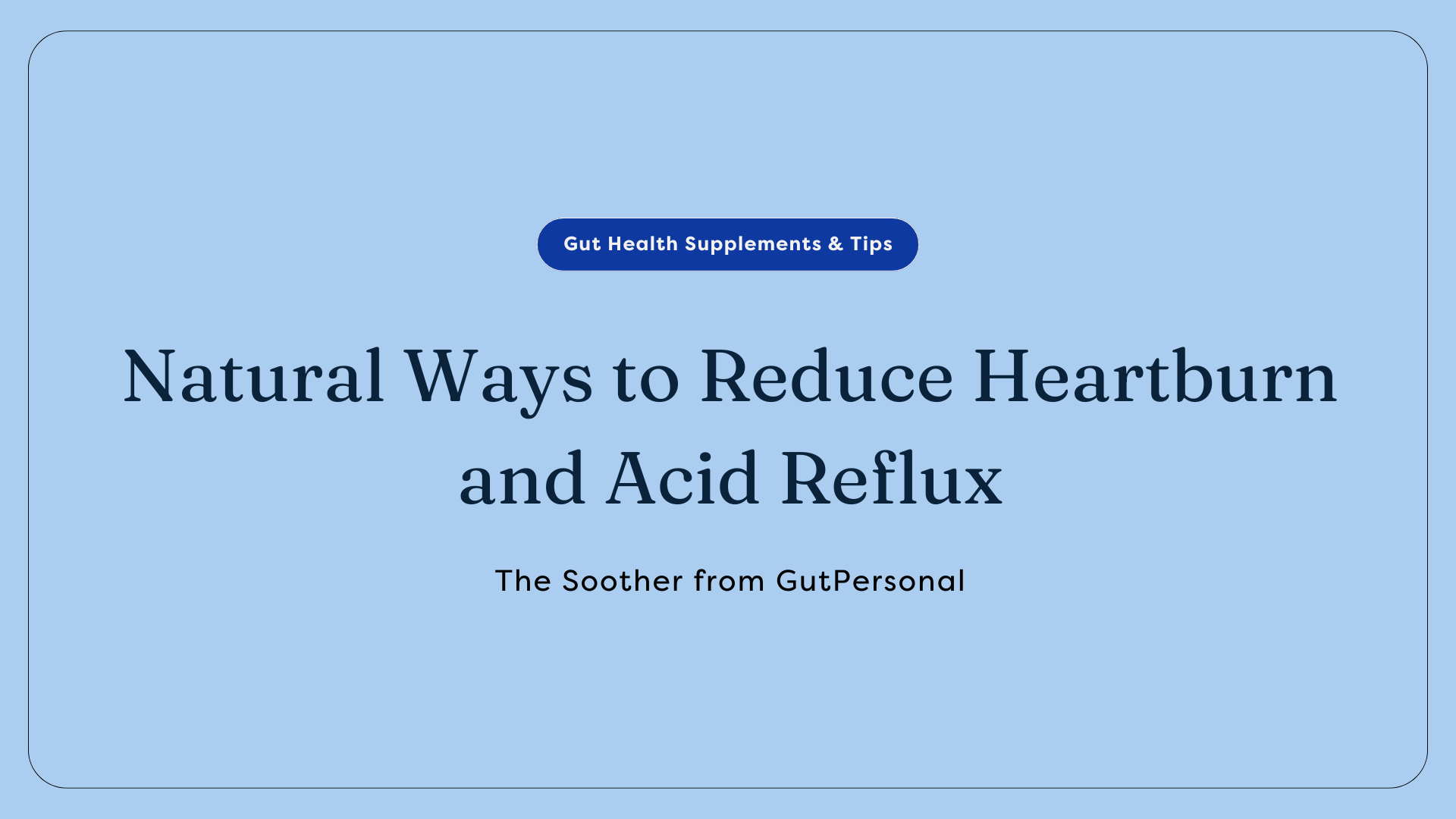Seasonal Affective Disorder (SAD) is a type of depression that occurs in a seasonal pattern, typically during the fall and winter months when exposure to natural sunlight is limited. While this condition has been attributed to reduced sunlight and its impact on the body's internal clock, there's an emerging link between gut health and SAD, particularly concerning vitamin D. In this blog post, we'll explore the connection between gut health and SAD, and how vitamin D supplements can be a valuable tool for a happy mood boost.
Understanding Seasonal Affective Disorder (SAD):
SAD is a mood disorder that typically occurs in the darker months, with symptoms often including low energy, mood swings, sleep disturbances, and a craving for starchy or sugary foods. The condition is believed to be related to changes in natural light patterns and the body's internal clock.
The Gut-Brain Connection:
The gut and the brain are intricately connected, with the gut often referred to as the "second brain." Emerging research shows that the gut microbiome, the collection of microorganisms in your digestive system, has a profound influence on your mood and mental health. An imbalance in gut bacteria has been linked to mood disorders, including depression, anxiety, and, potentially, SAD.
The Role of Vitamin D:
Vitamin D, often referred to as the "sunshine vitamin," plays a crucial role in overall health, including mental well-being. It's an essential nutrient for regulating mood, the immune system, and supporting gut health.
A Healthy Gut = More Vitamin D for the Body:
The link between gut health and vitamin D lies in the gut's role in activating this vital nutrient. When vitamin D is produced in the skin or consumed through food, it needs to be activated in the body. This activation occurs primarily in the liver and kidneys, but research indicates that the gut microbiome also plays a role in the process. An imbalance in the gut microbiome can affect the body's ability to "turn on" and use vitamin D!
Vitamin D Deficiency and SAD:
Numerous studies have linked vitamin D deficiency to an increased risk of SAD and other mood disorders. During the fall and winter months, when natural sunlight exposure is limited, the body's ability to produce vitamin D is reduced, potentially exacerbating the symptoms of SAD. The gut's involvement in vitamin D activation makes the gut microbiome also a big factor in SAD development.
Gut Health and SAD Prevention:
Maintaining a healthy gut microbiome is essential for overall health, including mental well-being. To support your gut health and potentially reduce the risk of SAD, consider the following steps:
- Include Probiotics: Consume foods rich in probiotics, such as yogurt, kefir, kimchi, and sauerkraut, to promote a balanced gut microbiome. And take our Gut Health Quiz to get your personalized probiotic recommendation.
- Eat a Fiber-Rich Diet: Fiber supports gut health by providing nourishment for beneficial gut bacteria. Include fruits, vegetables, and whole grains in your diet.
- Supplement Vitamin D: Many need to supplement with Vitamin D year-round, and especially during the fall and winter months, when natural sunlight exposure is limited.
- Consult a Professional: If you have concerns about SAD or gut health, consult with a healthcare provider or mental health specialist for guidance and support.
The link between gut health and Seasonal Affective Disorder is an area of growing research and understanding. By focusing on gut health and ensuring adequate vitamin D, you can potentially reduce the risk of SAD and better support your mood and overall mental well-being.









Leave a comment
All comments are moderated before being published.
This site is protected by hCaptcha and the hCaptcha Privacy Policy and Terms of Service apply.